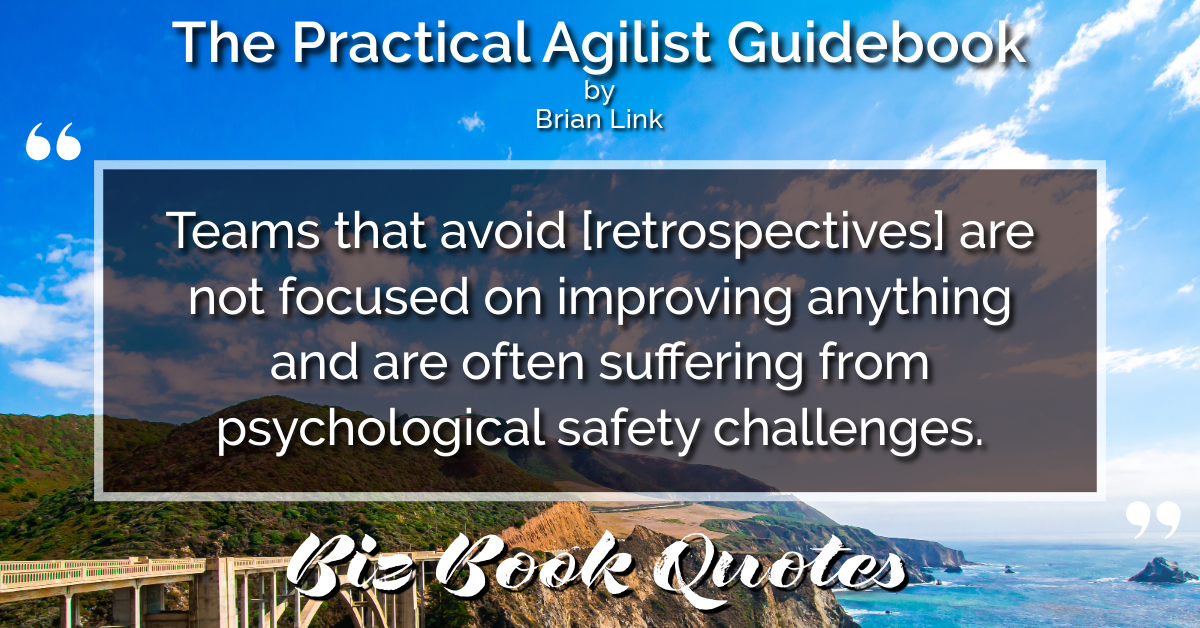|

|
The Practical Agilist Guidebook:
Any form of process improvement involves a short-term sacrifice for a long-term gain.
|
099 |
|

|
The Practical Agilist Guidebook:
…the most mature agile teams probably don’t even need a Scrum Master anymore.
|
102 |
|

|
The Practical Agilist Guidebook:
Predicting future milestones and setting specific dates is almost always a waste of time.
|
114 |
|

|
The Practical Agilist Guidebook:
…while it’s important to have a plan, it’s equally important to recognize that the plan is likely to change.
|
114 |
|

|
The Practical Agilist Guidebook:
Estimation is a dangerous topic in many corporate cultures.
|
128 |
|

|
The Practical Agilist Guidebook:
Thinking iteratively is one of those skills that is easy to understand but hard to master.
|
134 |
|

|
The Practical Agilist Guidebook:
…the art of writing user stories based on targeting the right outcomes is much more important than the syntax or the acceptance criteria.
|
135 |
|

|
The Practical Agilist Guidebook:
By getting feedback as we progress towards a bigger goal, we increase the chances of creating the right kind of value.
|
136 |
|

|
The Practical Agilist Guidebook:
Humans… tend to change their minds… once they see something tangible. The idea in our heads rarely matches the work presented in the real world. Things change.
|
136 |
|

|
The Practical Agilist Guidebook:
Teams that avoid [retrospectives] are not focused on improving anything and are often suffering from psychological safety challenges.
|
155 |











